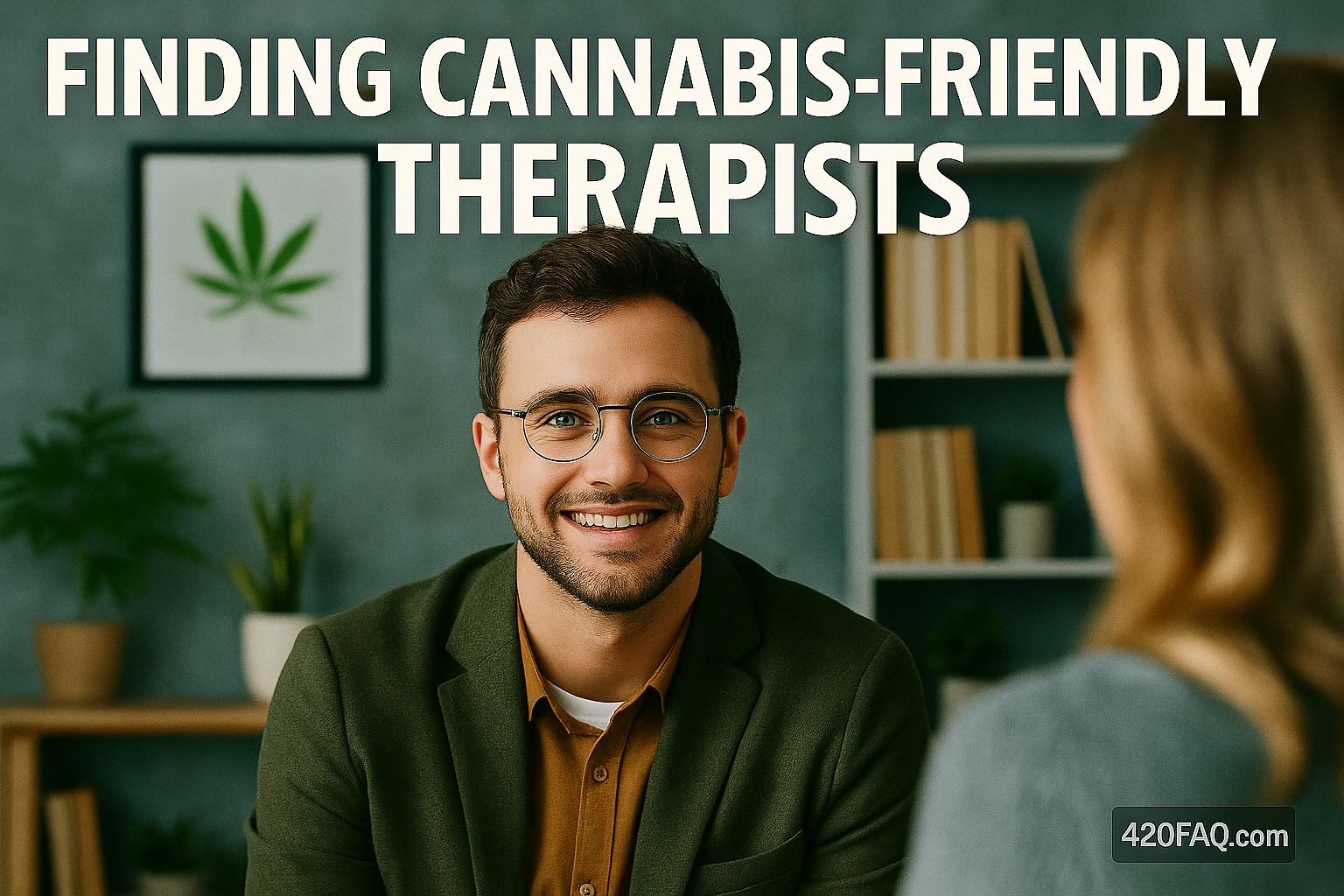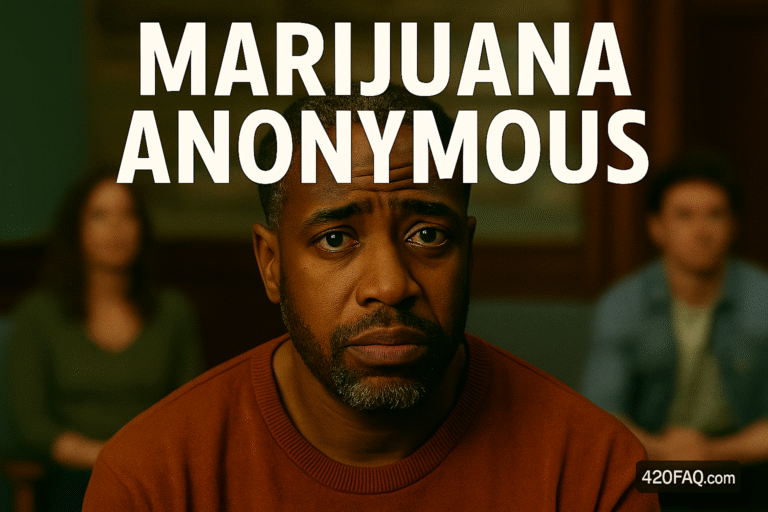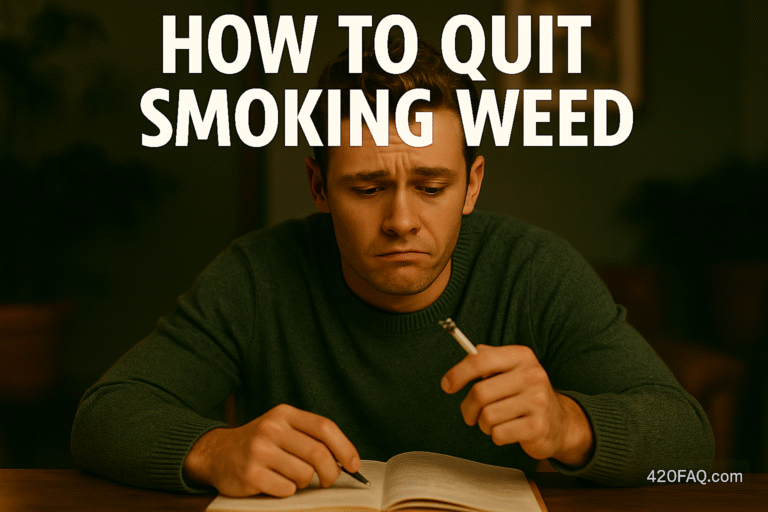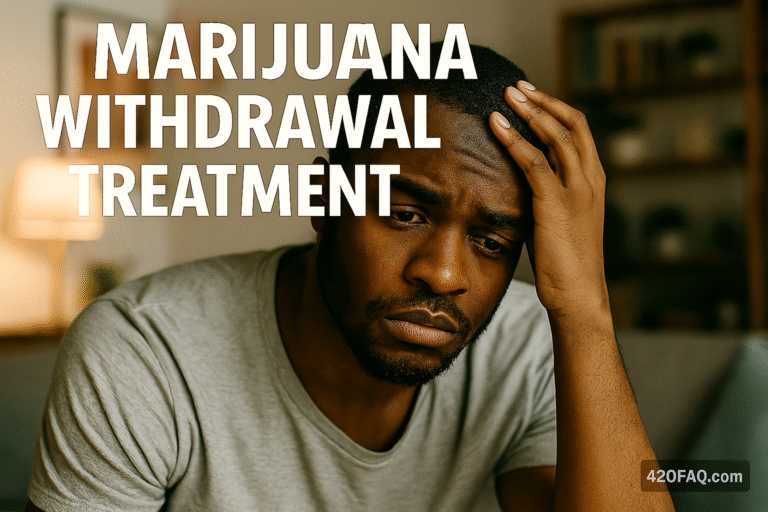
Finding Cannabis-Friendly Therapists: A Complete Guide to Mental Health Care Without Judgment
As cannabis legalization continues to expand across the United States, more people are openly discussing their cannabis use with healthcare providers. However, finding mental health professionals who are knowledgeable, non-judgmental, and supportive of cannabis use can still be challenging. This comprehensive guide will help you navigate the process of finding cannabis-friendly therapists who can provide effective mental health care while respecting your lifestyle choices.
Understanding Cannabis-Friendly Therapy
Cannabis-friendly therapists are mental health professionals who approach cannabis use without stigma or judgment. These practitioners understand that cannabis can be used medicinally, recreationally, or as a coping mechanism, and they’re trained to work with clients regardless of their relationship with cannabis. Unlike traditional therapists who might view all substance use as problematic, cannabis-friendly therapists take a more nuanced approach.
A cannabis-friendly therapist doesn’t necessarily advocate for cannabis use, but they won’t automatically assume it’s harmful or require you to quit as a condition of treatment. Instead, they focus on helping you understand your relationship with cannabis and how it fits into your overall mental health and wellness goals.
Why Seek Cannabis-Friendly Mental Health Care?
The benefits of working with a cannabis-friendly therapist extend far beyond simply avoiding judgment. When you’re honest about your cannabis use, your therapist can provide more effective treatment tailored to your actual circumstances rather than incomplete information.
Many people who use cannabis report that it helps with anxiety, depression, PTSD, chronic pain, and sleep disorders. A cannabis-friendly therapist can help you explore whether your cannabis use is beneficial, harmful, or neutral to your mental health goals. They can also help you develop healthy usage patterns and identify any problematic behaviors without forcing complete abstinence.
Traditional therapy approaches often require clients to be completely sober, which can create barriers to treatment for those who find cannabis helpful for their mental health conditions. Cannabis-friendly therapists recognize that mental health treatment should be accessible regardless of your substance use status.
Types of Mental Health Professionals Who May Be Cannabis-Friendly
Several types of mental health professionals may offer cannabis-friendly services, each with different training and specializations:
Licensed Clinical Social Workers (LCSWs) often have training in social justice issues and may be more likely to take a harm reduction approach to substance use. Many LCSWs work with diverse populations and understand the role of cannabis in various communities.
Licensed Professional Counselors (LPCs) and Licensed Mental Health Counselors (LMHCs) may specialize in areas like trauma, anxiety, or addiction treatment using cannabis-friendly approaches. These professionals often have flexibility in their treatment methods and may be more open to alternative approaches.
Psychologists with specializations in health psychology, neuropsychology, or behavioral medicine may have scientific understanding of cannabis effects and therapeutic applications. Some psychologists also specialize in addiction treatment using harm reduction models.
Psychiatrists who are cannabis-friendly can be particularly valuable because they can prescribe medications and understand potential interactions with cannabis. They may also be knowledgeable about medical marijuana and can help coordinate care with your prescribing physician.
Marriage and Family Therapists (MFTs) who are cannabis-friendly can help address relationship issues that may arise around cannabis use, whether it’s conflict with a partner who doesn’t use cannabis or family dynamics affected by your usage.
How to Find Cannabis-Friendly Therapists
Finding the right cannabis-friendly therapist requires research and asking the right questions. Here are several effective strategies:
Online Directories and Resources
Several specialized directories list cannabis-friendly mental health professionals. Psychology Today’s therapist directory allows you to filter for therapists who list substance use or cannabis-friendly approaches in their specialties. The directory includes detailed profiles where therapists often specify their approach to cannabis use.
The National Association of Cannabis-Friendly Therapists maintains a directory of verified cannabis-friendly mental health professionals. This resource specifically focuses on practitioners who have demonstrated knowledge and comfort working with cannabis users.
Local cannabis advocacy organizations often maintain referral lists for cannabis-friendly healthcare providers, including mental health professionals. These community-based resources can be particularly helpful for finding therapists who understand your local cannabis culture and legal landscape.
Professional Referrals
Ask your primary care physician, especially if they’re knowledgeable about medical marijuana, for referrals to cannabis-friendly mental health professionals. Doctors who are comfortable prescribing medical cannabis are often connected with like-minded mental health providers.
If you’re currently seeing any healthcare provider who knows about your cannabis use and is supportive, ask them for mental health referrals. Word-of-mouth referrals from trusted medical professionals can lead to excellent therapeutic relationships.
Contact local mental health clinics and ask specifically about their approach to cannabis use. Many progressive mental health centers have adopted harm reduction models and may have therapists who specialize in cannabis-friendly care.
Cannabis Industry Connections
Dispensaries and cannabis wellness centers sometimes maintain referral lists for cannabis-friendly healthcare providers. Budtenders and cannabis educators may have recommendations based on feedback from customers who’ve sought mental health care.
Cannabis support groups and community organizations often share resources about friendly healthcare providers. These peer networks can provide valuable insights about therapists’ actual approaches and effectiveness.
Questions to Ask Potential Therapists
When contacting potential therapists, it’s important to ask direct questions about their approach to cannabis use. Here are key questions to include in your initial consultation:
“What is your approach to clients who use cannabis?” This open-ended question allows the therapist to explain their philosophy and approach without leading them toward a specific answer.
“Do you have experience working with medical marijuana patients?” This question helps identify therapists who understand the medical applications of cannabis and are familiar with dosing, strains, and therapeutic effects.
“Would you require me to quit using cannabis to receive treatment?” Some therapists may be willing to work with cannabis users but still require abstinence for certain types of treatment. Clarifying this upfront prevents misunderstandings later.
“Are you familiar with harm reduction approaches to substance use?” Therapists who use harm reduction models are generally more cannabis-friendly and focus on reducing negative consequences rather than requiring complete abstinence.
“How do you handle documentation of cannabis use in treatment records?” Understanding how your cannabis use will be documented can be important for privacy and legal considerations.
Red Flags to Watch For
Certain responses or approaches should raise concerns about whether a therapist is truly cannabis-friendly:
If a therapist immediately assumes your cannabis use is problematic without understanding your usage patterns, motivations, or effects, this suggests a biased approach. Cannabis-friendly therapists should assess your individual situation rather than making assumptions.
Therapists who insist on complete abstinence from cannabis as a prerequisite for treatment may not be the best fit if you’re seeking cannabis-friendly care. While some treatment modalities may require sobriety, truly cannabis-friendly therapists should explain their reasoning and offer alternatives.
Be cautious of therapists who seem overly enthusiastic about cannabis use or suggest it as a solution to all problems. Cannabis-friendly doesn’t mean cannabis-advocating, and good therapists maintain professional boundaries around substance use recommendations.
Avoid therapists who seem uncomfortable discussing cannabis or change the subject when you bring it up. Effective therapy requires open communication about all aspects of your life that affect your mental health.
Specialized Approaches and Treatment Modalities
Several therapeutic approaches are particularly compatible with cannabis-friendly treatment:
Harm Reduction Therapy focuses on reducing negative consequences of substance use rather than requiring abstinence. This approach recognizes that people may continue using substances and works to minimize risks while maximizing benefits.
Motivational Interviewing helps clients explore their relationship with substances, including cannabis, in a non-judgmental way. This client-centered approach respects individual autonomy and helps people make informed decisions about their substance use.
Cognitive Behavioral Therapy (CBT) can be adapted for cannabis users to address anxiety, depression, and other mental health conditions while acknowledging cannabis use as part of the client’s coping strategies.
Trauma-Informed Care recognizes that many people use cannabis to self-medicate trauma symptoms. Cannabis-friendly trauma therapists can work with clients to process trauma while understanding cannabis use in context.
Mindfulness-Based Interventions can complement cannabis use for some individuals, particularly those using cannabis for anxiety or chronic pain management. These approaches can enhance the therapeutic benefits of both cannabis and traditional therapy.
Legal and Privacy Considerations
Understanding the legal and privacy implications of discussing cannabis use in therapy is crucial. Therapist-client privilege generally protects your discussions about cannabis use, but there are exceptions to confidentiality that you should understand.
In states where cannabis is legal, discussing your use in therapy carries fewer legal risks, but federal laws still classify cannabis as illegal. Most therapists prioritize client confidentiality and won’t report legal cannabis use to authorities.
If you’re using cannabis illegally in your state, understand that therapists are mandated reporters for certain situations but generally aren’t required to report illegal drug use unless it involves child endangerment or imminent safety risks.
Ask your therapist about their documentation practices and how cannabis use information is recorded in your treatment records. Some therapists use discrete coding or focus on symptoms rather than specific substances to protect client privacy.
Working Effectively with Your Cannabis-Friendly Therapist
Once you’ve found a cannabis-friendly therapist, maximizing the therapeutic relationship requires honest communication and realistic expectations. Be prepared to discuss your cannabis use patterns, including frequency, methods of consumption, strains used, and effects experienced.
Share both positive and negative effects of your cannabis use. Cannabis-friendly therapists can help you optimize the benefits while addressing any problems. This might include adjusting usage patterns, trying different strains, or developing additional coping strategies.
Be open to exploring your relationship with cannabis as it evolves. Your needs and usage patterns may change as you progress in therapy, and a good cannabis-friendly therapist will help you adapt accordingly.
Remember that being cannabis-friendly doesn’t mean your therapist will always agree with your cannabis use decisions. Part of effective therapy involves challenging thinking patterns and behaviors, including those related to substance use.
Cost and Insurance Considerations
Cannabis-friendly therapy is typically covered by insurance in the same way as traditional mental health services. The key is finding cannabis-friendly therapists who accept your insurance plan.
Some specialized cannabis-friendly therapists may operate outside of insurance networks, requiring out-of-pocket payment. While this can be more expensive, it may provide access to highly specialized care and greater privacy.
Employee Assistance Programs (EAPs) through your workplace may provide access to cannabis-friendly counseling, though you may need to specifically request therapists comfortable with substance use issues.
Consider the long-term cost benefits of finding the right cannabis-friendly therapist versus settling for someone who isn’t truly supportive of your lifestyle and needs.
Conclusion
Finding a cannabis-friendly therapist is an investment in your mental health that can lead to more effective, honest, and sustainable treatment outcomes. By understanding what to look for, asking the right questions, and being clear about your needs, you can find mental health professionals who will support your journey toward wellness while respecting your choices about cannabis use.
Remember that the therapeutic relationship is collaborative, and you have the right to work with someone who understands and respects all aspects of your life. With the growing acceptance of cannabis and evolving approaches to mental health care, cannabis-friendly therapists are becoming more available, making it possible to receive excellent mental health care without compromising your authenticity or values.





